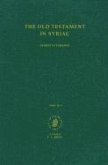This project highlights Jesus' use of scripture within each Synoptic Gospel as an important component of each Gospel's narrative rhetoric. Using literary analysis -- particularly composition criticism, narrative criticism, and comparative analysis -- the main object of study is the explicit citation of Jesus, rather than any implied citation, allusion or echo. Concentration on the latter areas offers insight into the way scripture was understood by Christians and Jews in Second Temple Judaism, however, the study of explicit citations provides the basis upon which we assume other allusions may be heard by first century audiences. The study concludes that each Gospel offers its own distinctive portrayal of Jesus' use of scripture based on each one's narrative rhetoric.
Bitte wählen Sie Ihr Anliegen aus.
Rechnungen
Retourenschein anfordern
Bestellstatus
Storno


